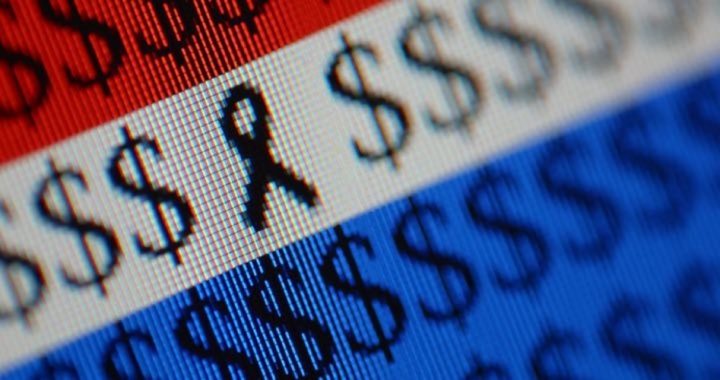
Need more evidence that big technology companies are bastions of leftism? According to a new report from the Daily Caller, four of the biggest players in the online world — Facebook, Amazon, Google, and Twitter — are in league with the far-left, George Soros-funded Southern Poverty Law Center (SPLC).
The well-heeled SPLC, which cares so much about poor Americans that it stashes its millions in offshore tax havens, is known for labeling organizations “hate groups” simply because they hold conservative or Christian views. The SPLC often gets away with such designations because of media bias, but it has occasionally been forced to recant.
Now the SPLC, in partnership with Big Tech, is in the business of silencing anti-progressive voices on the Internet.
Facebook, for example, includes the SPLC among the outside organizations that it consults in developing its hate-speech policies, Facebook spokeswoman Ruchika Budhraja told the Daily Caller. Although Budhraja declined to name any other consulted groups, she did emphasize that Facebook does not always “map” its policies “to the SPLC’s list or process.” Indeed, sometimes Facebook has not been strident enough to suit the SPLC, which recently accused the company of failing to stem the tide of “anti-Muslim hate” on its website.
“We have our own process and our processes are different and I think that’s why we get the criticism [from the SPLC], because organizations that are hate organizations by their standards don’t match ours,” Budhraja said.
Amazon, by contrast, does not distance itself from the SPLC at all. In fact, it gives the SPLC practically unchecked authority to determine which groups are eligible for donations from the Amazon Smile program, which allows customers to designate a charity to receive a small portion of the proceeds of their Amazon purchases. “We remove organizations that the SPLC deems as ineligible,” an Amazon spokeswoman told the Daily Caller.
“Amazon grants the SPLC that power ‘because we don’t want to be biased whatsoever,’ said the spokeswoman, who could not say whether Amazon considers the SPLC to be unbiased,” reported the conservative website.
The SPLC, naturally, considers itself eligible for Amazon Smile, but it has deemed Christian groups such as the Alliance Defending Freedom ineligible. Hard-line Islamic groups that are often awash in anti-Semitic rhetoric, on the other hand, are allowed to participate in the program.
Twitter maintains a long list of “safety partners” helping the company “maintain a safe environment.” Among those partners is the SPLC, which is named as “working to combat offensive speech and harassment.”
In an interview with the Daily Caller, a Twitter spokeswoman wouldn’t comment on the SPLC’s inclusion in the list specifically but said the company is “in regular contact with a wide range of civil society organizations and [nongovernmental organizations].”
Google, for its part, employs the SPLC in YouTube’s “Trusted Flagger” program, which puts the kibosh on content that violates YouTube’s Community Guidelines. Among other things, those guidelines prohibit “content that promotes or condones violence against individuals or groups based on race or ethnic origin, religion, disability, gender, age, nationality, veteran status, or sexual orientation/gender identity, or whose primary purpose is inciting hatred on the basis of these core characteristics.”
According to the Daily Caller, “flaggers are equipped with digital tools allowing them to mass flag content for review by YouTube personnel,” and they “act as guides to YouTube’s content monitors and engineers who design the algorithms policing the video platform, but may lack the expertise needed to tackle a given subject.”
Because of confidentiality agreements, most flaggers haven’t revealed their participation in the program, but the SPLC has confirmed that it is a flagger. This is troubling because the SPLC’s definition of “hate speech” could easily lead to the censorship of conservative or Christian videos. (YouTube did, in fact, remove content from a variety of conservative organizations early this year, though it attributed this to human error.)
In short, a radical leftist organization with a history of making unfounded — and, in at least one instance, terrorist-inspiring — accusations against those with whom it disagrees now has vast influence over Internet content and some charitable giving. If tech firms really want to stamp out hate speech, the first thing they should do is dissociate themselves from the hatemongering SPLC.



